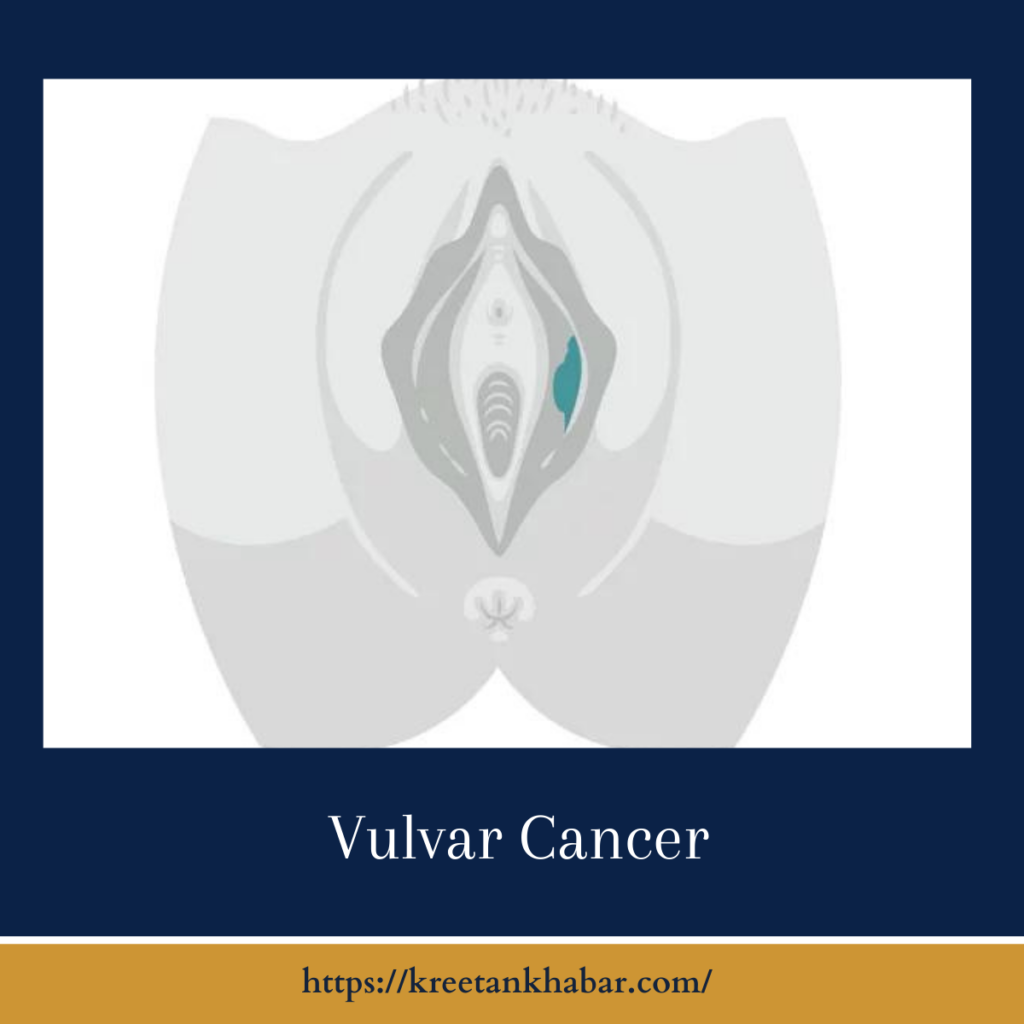Vulvar Cancer
Introduction:
Vulvar cancer, though relatively rare, is a significant health concern affecting women. Nestled in the delicate anatomy of the vulva, this form of cancer demands attention and awareness. In this article, we embark on a journey to understand the complexities of vulvar cancer, exploring its risk factors, symptoms, diagnostic methods, and available treatment options.

Understanding Vulvar Cancer:
Vulvar cancer originates in the external female genitalia, known as the vulva. This includes the outer lips (labia majora and labia minora), clitoris, and the opening of the vagina. While vulvar cancer accounts for a small percentage of gynecological cancers, its impact on affected individuals is profound.
Risk Factors:
- Age:
- Vulvar cancer is most commonly diagnosed in older women, with the risk increasing with age.
- However, it can occur at any age, and vigilance is crucial regardless of life stage.
- Human Papillomavirus (HPV) Infection:
- Persistent infection with certain strains of HPV, particularly HPV 16 and 18, is a significant risk factor for vulvar cancer.
- HPV vaccination has emerged as a preventive measure against some of these high-risk strains.
- Smoking:
- Tobacco use has been linked to an increased risk of vulvar cancer.
- Smoking may contribute to the development of precancerous changes in the vulva.
- Immunosuppression:
- Conditions or medications that weaken the immune system, such as HIV/AIDS or organ transplantation drugs, elevate the risk of vulvar cancer.
- A robust immune system plays a role in suppressing the development of cancerous cells.
- Chronic Skin Conditions:
- Long-term skin conditions, such as lichen sclerosus or lichen planus, may increase the risk of vulvar cancer.
- These conditions cause chronic inflammation and changes in the vulvar skin.
- Precancerous Lesions:
- Presence of precancerous lesions, like vulvar intraepithelial neoplasia (VIN), can escalate the risk.
- Regular gynecological check-ups are vital for early detection and management of these lesions.
Symptoms:
- Persistent Itching or Pain:
- Chronic itching, pain, or tenderness in the vulvar area may indicate vulvar cancer.
- These symptoms often persist and do not respond to typical treatments.
- Changes in Skin Color or Texture:
- Any noticeable changes in the color or texture of the skin on the vulva, such as thickening or the appearance of a lump, should be investigated.
- Regular self-examinations are encouraged.
- Bleeding or Discharge:
- Unexplained bleeding, especially after intercourse or postmenopausal bleeding, is a potential warning sign.
- Abnormal vaginal discharge, particularly if it is bloody or has an unusual odor, warrants attention.
- Pain During Sexual Activity:
- Pain or discomfort during sexual intercourse may be an indication of vulvar cancer.
- It is essential to communicate any changes in sexual function with a healthcare provider.
- Enlarged Lymph Nodes:
- In advanced stages, vulvar cancer may cause the lymph nodes in the groin to become enlarged.
- Palpable lumps or swelling should be promptly evaluated.
Diagnosis:
- Biopsy:
- A biopsy, where a small sample of tissue is collected and examined under a microscope, is the definitive diagnostic tool for vulvar cancer.
- Different biopsy techniques may be used based on the suspicious area.
- Imaging Studies:
- Imaging studies, such as CT scans or MRI, may be employed to determine the extent of cancer spread (staging) and plan treatment accordingly.
- Colposcopy:
- Colposcopy involves using a magnifying instrument to closely examine the vulvar tissue.
- It helps identify abnormalities that may require further investigation.
- Pelvic Exam:
- A thorough pelvic exam is conducted to assess the vulvar area for any visible signs of cancer or abnormalities.
- This is often a part of routine gynecological check-ups.
Treatment Options:
- Surgery:
- Surgical removal of the cancerous tissue (wide local excision) or, in more advanced cases, removal of the entire vulva (vulvectomy) may be recommended.
- Lymph node removal may also be part of the surgical approach.
- Radiation Therapy:
- Radiation therapy uses high-energy beams to target and destroy cancer cells.
- It may be employed as the primary treatment or in conjunction with surgery.
- Chemotherapy:
- Chemotherapy involves the use of drugs to kill cancer cells or impede their growth.
- It may be administered before or after surgery, or in cases where cancer has spread.
- Immunotherapy:
- Immunotherapy drugs stimulate the body’s immune system to recognize and attack cancer cells.
- This approach is being explored in clinical trials for vulvar cancer.
- Palliative Care:
- In cases where vulvar cancer is advanced and cure is not feasible, palliative care focuses on relieving symptoms, improving quality of life, and providing emotional support.
The more points of treatmentsoption of Vulvar Cancer:
Conclusion:
Vulvar cancer is a challenging diagnosis, but advances in early detection and treatment have improved outcomes for many individuals. Regular gynecological check-ups, awareness of risk factors, and open communication with healthcare providers are crucial components of managing vulvar health. As research continues and medical interventions evolve, the journey toward better understanding and treating vulvar cancer brings hope to those affected by this complex condition.
Read also : Exploring the Delightful Boost of the Green Tea Shot 2023